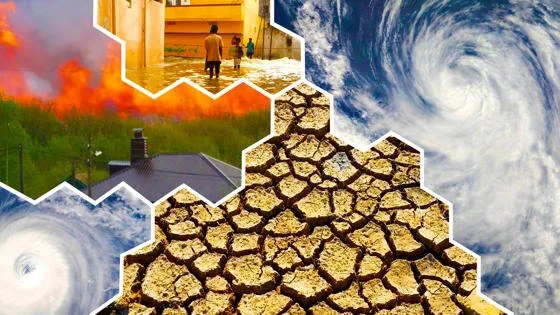Can the world avert a climate emergency?

Contents
The COVID-19 pandemic is likely to be seen as a portal to another era by future generations. Some commentators have warned that governments will use the crisis to deregulate economies in the name of prosperity, while others have said the realisation that less traffic and cleaner air for many people is a huge opportunity to change behaviour.
As societies try to rebuild in the aftermath of the COVID-19 pandemic, Professor Fankhauser explains that the focus of the Grantham Research Institute on Climate Change and the Environment at LSE is on how to "build back better" by making the environmental, economic and societal case for a zero-carbon, sustainable economy.
The virus has demonstrated just how intertwined our prosperity and welfare is with the natural environment, and how careless and calamitous our environmental stewardship has been.
He says: "It is possible to design recovery packages in a way that is pro-environment, by emphasising investment in zero-carbon, climate-resilient infrastructure, for example. This includes renewable electricity, battery storage, charging networks for electric cars, energy efficient buildings, flood defence measures and nature-based solutions."
With the global economy expected to contract at a level not witnessed since the Great Depression due to COVID-19, Professor Fankhauser says the shedding of environmental regulations and bolster polluting corporations for short-term growth would pave the way to future disaster: "The virus has demonstrated just how intertwined our prosperity and welfare is with the natural environment, and how careless and calamitous our environmental stewardship has been."
Reversing climate change requires us all to take responsibility
Our individual choices are of increased significance in the political context of 2020: "I always used to say that the most effective thing people can do is to create political pressure, to be noisy and demand change. Thanks to Greta Thunberg that message has now been received. We can move on to what we can do as individuals."
The Grantham Research Institute’s current research theme of "Changing Behaviour" is exploring whether some of the behaviour changes that COVID-19 has forced on us can be preserved in a less disruptive way. He says: "Perhaps video conferencing is here to stay and will replace excessive air travel. Perhaps decision makers will start paying more attention to environmental risks of their investment decisions." Institute researchers had earlier worked with airline pilots on behavioural measures to make air travel more energy efficient.
Professor Fankhauser admits it was an "uncomfortable discovery" when analysis of the Institute's individual carbon footprints revealed how much their personal emissions related to air travel. This is something the team are giving serious thought to, "which is particularly key given the importance of global engagement in what we do."
We have learnt that the risks are higher than we thought. But we now also understand what needs to be done to solve the problem.
Why LSE 2030 has prioritised sustainability
A large part of the remaining emissions from the Institute, in particular those from electricity and heat, are provided by LSE, and Professor Fankhouser views LSE’s 2030 strategy as the vehicle which will drive the LSE community to reduce its reliance on carbon.
"Sustainability is a core plank of LSE 2030. We share the aspiration of senior management that sustainability must be embedded in everything LSE does: teaching, research, engagement, investment and our own environmental footprint."
Professor Fankhauser highlights a promising tool to assess the alignment of large firms with the Paris Agreement – the Transition Pathway Initiative (TPI) – which now also helps to inform LSE’s investment and divestment decisions. Developed by researchers at the Grantham Research Institute, the TPI allows investors to assesses the preparedness of firms for the transition to a low-carbon economy. Launched in 2017, it is rapidly becoming one of the ‘go-to’ corporate climate action benchmarks.
We can have a positive, sustainable future
Sam Fankhauser’s enthusiasm about LSE’s positive contribution to the challenge of climate change is reflected in an optimism for the planet’s future.
"I began working on climate change as a PhD student in the early 1990s. Back then, climate change was a problem of the future. Now it is a problem of the present.
"Our understanding of the issue has improved massively. We have learnt that the risks are higher than we thought. But we now also pretty much understand what needs to be done, economically and technologically, to solve the problem. Some of those solutions, like renewable energy, have fallen precipitously in costs."
Professor Fankhauser says the challenge has now moved on to make these technical solutions politically, behaviourally and societally feasible: "These are all challenging questions, but I have enough confidence in the pace of emissions reduction, and my longevity, to think I will see a carbon-free world, although I will most likely be retired by then."
Download a PDF version of this article




